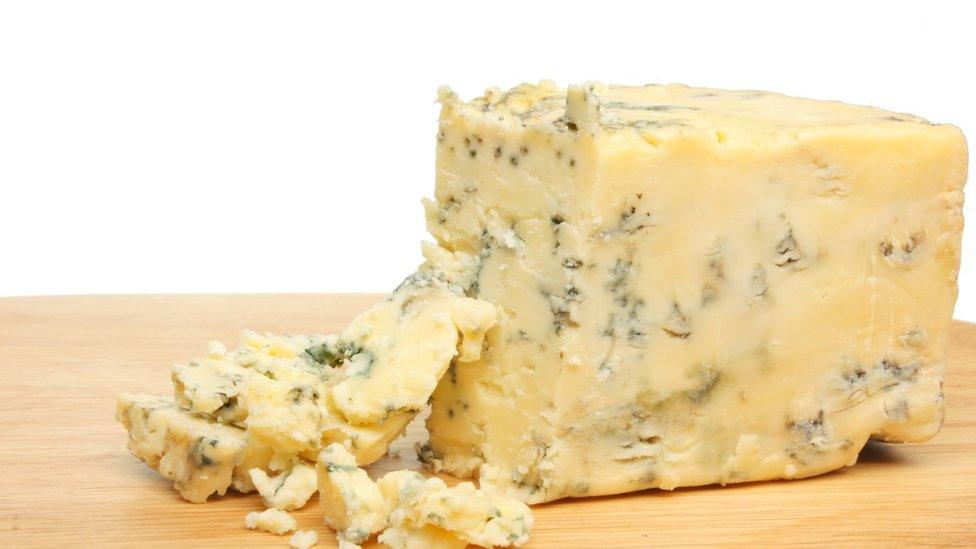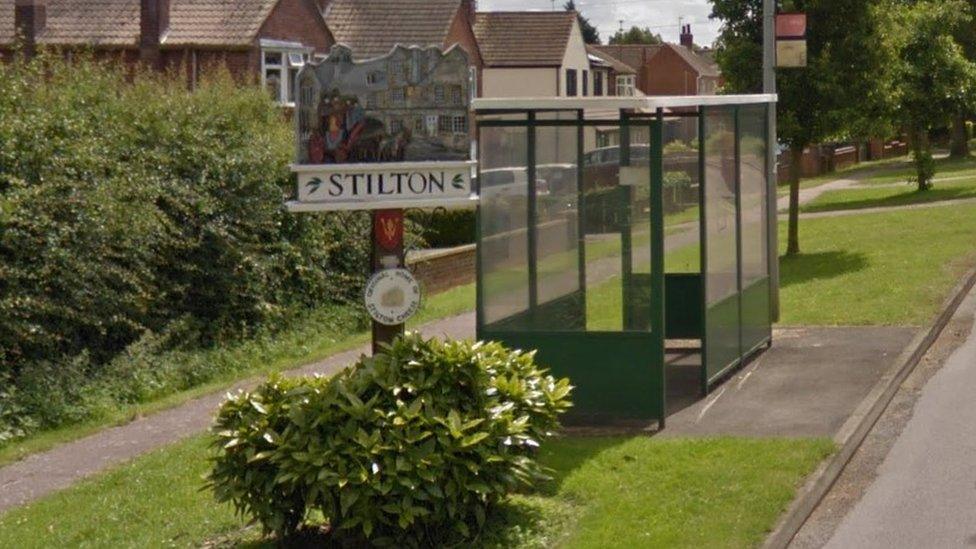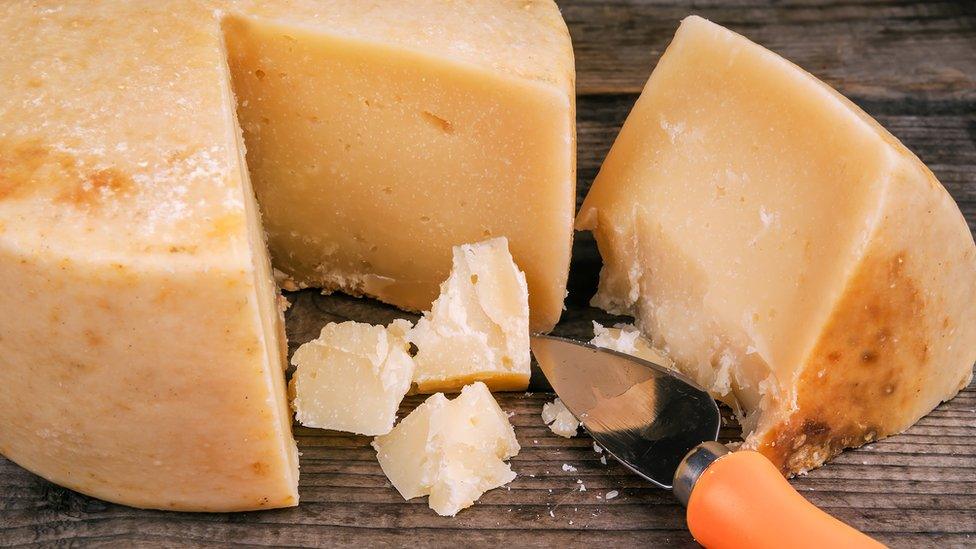Row over stilton cheese's origins causes stink
- Published
- comments

Currently, Stilton can only be produced in Leicestershire, Derbyshire and Nottinghamshire
English law would have to change to allow stilton cheese to be made outside the East Midlands, it has been claimed.
It follows a Conservative MP's call for the village of Stilton, Cambridgeshire, to have the right to make the product following the UK's exit from the EU.
The cheese can only legally be called stilton if it is made in Derbyshire, Nottinghamshire or Leicestershire.
The UK Protected Food Names Association said the industry was at risk of being "undermined" if the law changed.
Shailesh Vara MP said Stilton village had become "caught up in the European bureaucracy" and argued the cheese should now be made there following Brexit.
"A local historian has found the cheese was made here in the past," he told Parliament.
"I want to see our cheese made in Stilton, and become a world product."

The village of Stilton claims to be the "home of Stilton cheese"
The legislation protecting where stilton can be made comes from the EU's Protected Foods Name Scheme, external.
However, Matthew O'Callaghan, the chair of the UK Protected Food Names Association, said the government would have to go the High Court to allow the cheese to be made elsewhere.
"It's actually not EU law which protects stilton, it's English law and it was the High Court of England in 1996 that decided that stilton cheese originated in and around the Melton Mowbray area," he said.
"It was the High Court's decision that restricted production to Leicestershire, Nottinghamshire and Derbyshire.
"It matters because stilton has a history and heritage and the dairies that have been continuously making this cheese for 250 years and they have the knowledge and the links to the landscape."

North West Cambridgeshire MP Shailesh Vara wants the cheese to be made in Stilton
Mr O'Callaghan also said the 80 protected food names account for a "quarter of the UK's total food and drink exports".
"If you start tinkering with those then you undermine a $6bn industry," he said.
The Department for Environment, Food and Rural Affairs said products like stilton and Melton Mowbray pork pies would continue to have legal protection during the transition period as part of the EU's scheme.
Afterwards, new UK Protected Geographical Indication (PGI) schemes will be launched to ensure the foods continue to enjoy legal protection.
The government said changes to the protected products can only be proposed by those with a legitimate interest including "geographical developments" since the product was first registered.

Protected Food Names
Under EU law there are several ways to protect the heritage of famous foods made traditionally or tied to particular locations
Traditional Speciality Guaranteed (TSG) means the recipe or method of production has to be very specific
Protected Geographical Indication (PGI) means the recipe or method is protected and it has to be carried out in a specific location
Protected Designation of Origin (PDO) status means it also has to be made with ingredients from a certain geographical area
Examples include Parmesan Reggiano cheese, Parma ham, Stornoway black pudding and Champagne

Follow BBC East Midlands on Facebook, external, Twitter, external, or Instagram, external. Send your story ideas to eastmidsnews@bbc.co.uk.
- Published7 May 2013

- Published20 April 2012
.jpg)
- Published18 October 2019

- Published25 June 2016

- Published7 April 2019
